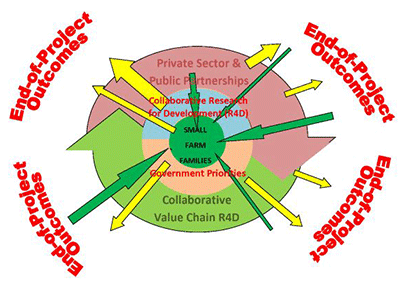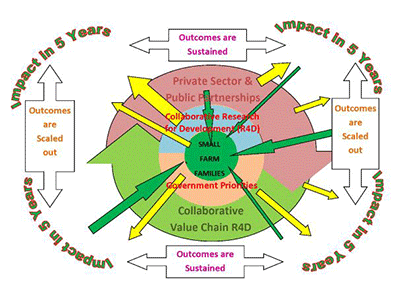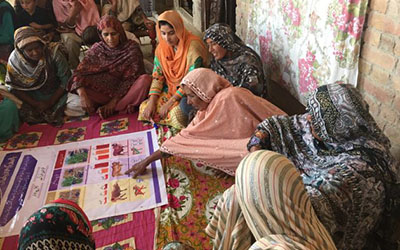 The target beneficiaries from ACIAR’s program are Small Farm Families. ACIAR’s strategy is dedicated to human development through improving food security and reducing poverty among smallholder farmers and rural communities, enhancing human nutrition and reducing risks to health.
The target beneficiaries from ACIAR’s program are Small Farm Families. ACIAR’s strategy is dedicated to human development through improving food security and reducing poverty among smallholder farmers and rural communities, enhancing human nutrition and reducing risks to health.
This aligns closely with the Government of Pakistan’s Vision 2025, as well as Pakistan Agriculture Strategy; the 12th 5-year Development Plan and Provincial initiatives.
Past, current and future projects involve listening to the needs of Small Farm Families and addressing them in partnership. They involve collaboration between Australian and Pakistani research institutions and building scientific and policy capability within Pakistan.
This is best explained in the words of the late Dr Iftikhar Ahmad, a senior Pakistan research leader as he reflected on his own early involvement with ACIAR:
"The Australians sought to look at agriculture in Pakistan differently and join hands with us to seek solutions to complex problems affecting two main sectors—horticulture and dairy—walking and talking across the value chains, building linkages from policy to farm, from technical to social, and from heart to heart, Across the Seven Seas – Saat Samundar Par"
Pairing productivity with efficient markets can deliver greater rewards for the effort and risks of family farming. Past and current value chain projects in Pakistan are already demonstrating this and ACIAR’s 10 Year Strategy confirms its intent to engage with the private sector where possible.
Listening and collaborating
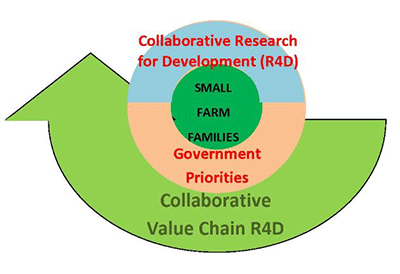 Aik Saath involves: Listening to the needs and concerns of small farmers and including all the family
Aik Saath involves: Listening to the needs and concerns of small farmers and including all the family
Our Participative Research approach focuses on local circumstances. This means taking the time to assess community, social and family dynamics. Women generally play a crucial role in agriculture in Pakistan. New approaches could help or hinder their lives. The norms and values governing women’s engagement have to be carefully considered throughout. The Aik Saath Gender Inclusiveness Strategy for Pakistan has guidelines to ensure that project planning and activities are never “gender blind”.
Aik Saath involves: Collaborating to strengthen the research
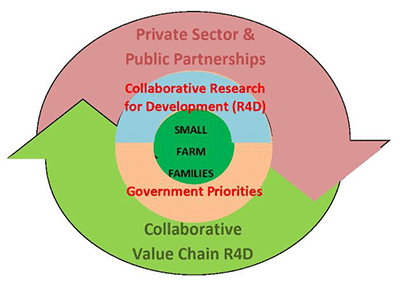 As a small, collaborative, research facilitator and investor, rather than a large-scale development donor, ACIAR is uniquely placed. The challenges faced by small farm families are multi-dimensional and require a team approach.
As a small, collaborative, research facilitator and investor, rather than a large-scale development donor, ACIAR is uniquely placed. The challenges faced by small farm families are multi-dimensional and require a team approach.
Specialists from different disciplines across the biophysical and social sciences join forces with marketing and economic analysts to develop integrated approaches to these challenges:
- firstly, to sustainably improve productivity (including managing natural resources and adapting to climate change); and
- secondly, to understand and foster more inclusive market chains and policies affecting them.
ACIAR commissions leading institutions in Pakistan and Australia to bring their different skills to the table to develop fresh insights while building the capacity of younger scientists.
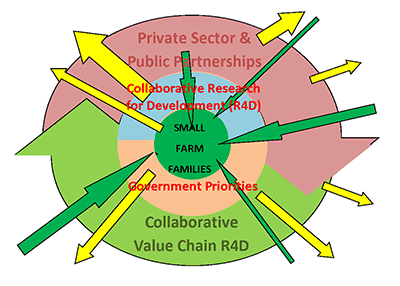 Sustaining and scaling
Sustaining and scaling
Aik Saath involves: Sustaining and scaling the project outcomes through public and private partnerships
ACIAR is a research specialist – commissioning research that will support the development of its partner countries. It aims to
- ensure that, by the end of each project, important research questions have been answered and valuable outcomes delivered for small farm families.
However, valuable research outcomes can only be transformed into great development impacts if their benefits continue and are spread to the wider community. Each project considers the possible pathways and partnerships that could help deliver this after projects conclude.
- firstly, sustaining the gains made by those farmers engaged with the research, by ensuring productivity changes are market-relevant as well as environmentally sound and family-friendly;
- secondly, harnessing the private sector (alongside public sector extension services) to scale out the outcomes from ACIAR research beyond those farmers directly engaged in projects.
